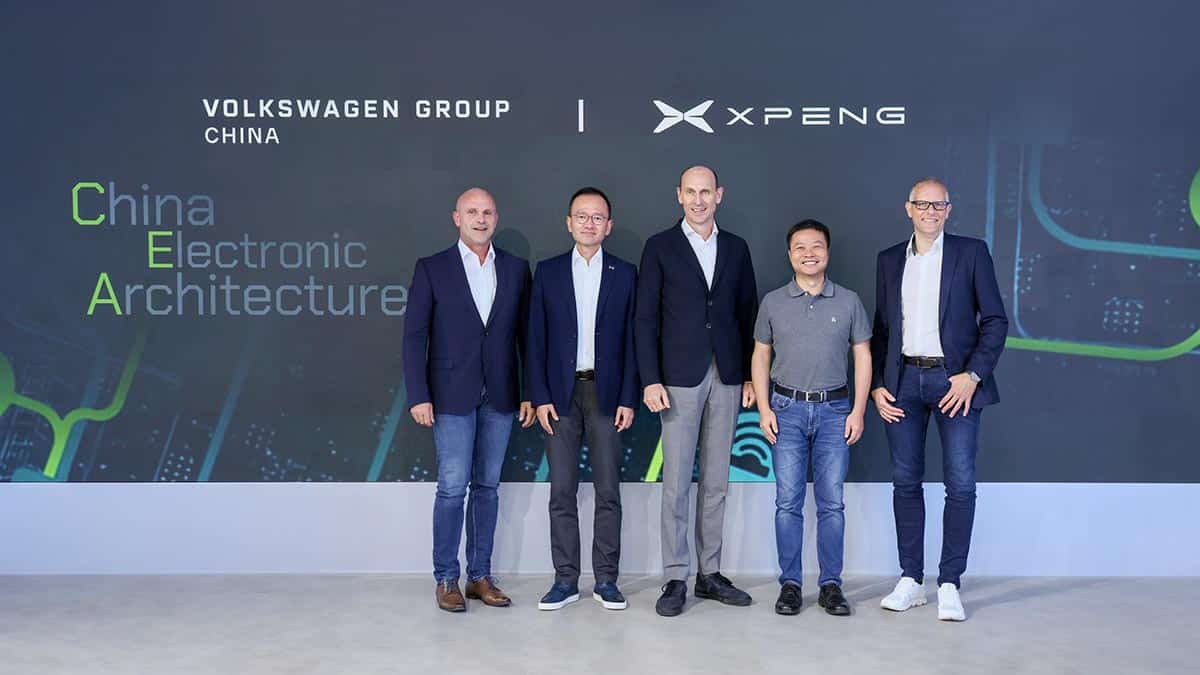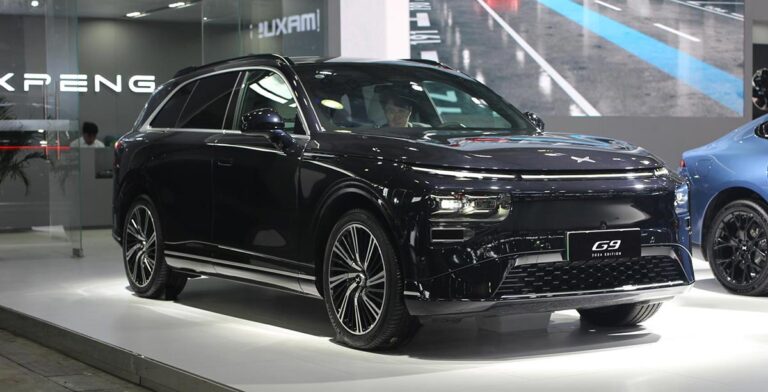Xpeng and Volkswagen have established project centers in Guangzhou and Hefei, and the first vehicle with the jointly developed E/E architecture will start production in about 24 months.

Xpeng (NYSE: XPEV) and Volkswagen Group have expanded their collaboration from a China-only vehicle platform to the latter's global platform, marking a further deepening of their partnership.
The two companies will co-develop an electrical/electronic architecture (E/E Architecture) based on Volkswagen's China Main Platform (CMP) and Modular Electric Drive Matrix (MEB) platforms for all locally produced models, the Chinese electric vehicle (EV) maker announced today.
"XPENG and the Volkswagen Group have entered into a Master Agreement on E/E Collaboration ("Master Agreement") which solidifies both parties’ commitment to jointly develop industry-leading E/E Architecture for all locally produced vehicles based on Volkswagen’s China Main Platform (CMP) and Modular Electric Drive Matrix (MEB) platform," Xpeng said in a statement.
By comparison, the company’s statement on April 17, when they signed a technical cooperation agreement on vehicle architecture, only mentioned the CMP, without any reference to MEB.
The two companies will jointly develop and integrate Xpeng's latest-generation E/E architecture into the Volkswagen CMP, Xpeng's April 17 statement said.
MEB is Volkswagen's vehicle platform to support global model development in the EV era, and in the fuel-vehicle era, the platform is MQB -- Modularer Querbaukasten, or modular transversal toolkit.
The execution of the master agreement not only marks the acceleration of the joint development of the E/E architecture in China, but also paves the way for further expansion of the E/E architecture cooperation, Xpeng's statement today said.
Xpeng and Volkswagen will explore further collaboration opportunities to expand the use of the jointly developed E/E architecture, according to the statement.
Under the E/E architecture technology partnership, Xpeng and Volkswagen have established project centers in Guangzhou and Hefei, where engineers from both companies will work closely to accelerate the development process of the E/E architecture, according to the statement.
The first vehicle with the jointly developed E/E architecture will start production in about 24 months, Xpeng said.
“For us at Volkswagen, this project is also the next milestone in the consistent implementation of our 'in China for China' strategy -- with a clear focus on Chinese customers and technological innovations,” said Ralf Brandstätter, Member of the Board of Management of Volkswagen Group China.
From 2026, all all-electric vehicles of the Volkswagen brand in China will be equipped with this architecture, Brandstätter said.
Volkswagen announced on July 26, 2023 that it would invest about $700 million to acquire about 4.99 percent of Xpeng.
The two companies plan to co-develop two Volkswagen-branded EV models based on the Xpeng G9 platform for China's mid-size car market.
The companies signed a new agreement on February 29 aimed at accelerating the development of the collaborative models and reducing costs through joint sourcing.
On April 11, Volkswagen said it would invest 2.5 billion euros ($2.73 billion) to further expand its production and innovation center in Hefei, Anhui province, and strengthen its local research and development capabilities.
Volkswagen will produce two Volkswagen-branded models co-developed with Xpeng in Hefei, the first of which will be a mid-size SUV scheduled to go into production in 2026, the German carmaker said on April 11.
On April 17, Xpeng announced that it had signed a framework agreement with Volkswagen for technical cooperation on E/E Architecture, saying the two companies would jointly develop and integrate Xpeng's latest-generation E/E Architecture into the Volkswagen CMP.
